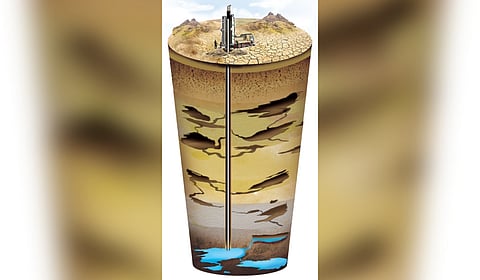

THIRUVANANTHAPURAM: A study jointly conducted by the Centre for Water Resources Development and Management, the Kerala Forest Research Institute and the Institute for Climate Change Studies has revealed alarming trends of groundwater depletion, saline intrusion and unreliable municipal water supplies across the state.
The findings of the study titled ‘Identification of water stress hotspots for domestic use across Kerala’ underscored that nearly all districts are experiencing severe summer water shortages due to climate variability, increasing demand, and aging infrastructure.
In northern districts such as Kasaragod and Kannur, excessive groundwater extraction and saline intrusion have critically lowered water tables, while in Wayanad and Malappuram, poor distribution networks have worsened the crisis, the study has found.
Other districts, including Kozhikode, Palakkad, Thrissur, Ernakulam, Idukki, Kottayam, Alappuzha, Pathanamthitta, Kollam, and Thiruvananthapuram, face a combination of deteriorating infrastructure, erratic municipal supply, and quality issues.
The findings were discussed in detail during the World Water Day 2025 discussion organised in Thiruvananthapuram on Saturday by the Kerala State Council for Science, Technology, and Environment (KSCSTE) in collaboration with the EIACP PC Hub supported by the Union Ministry of Environment, Forest & Climate Change.
Experts strongly recommended upgrading water distribution systems, expanding monitoring networks, and implementing adaptive reservoir management. They also called for community-driven conservation efforts such as rainwater harvesting and stricter water-use regulations.
Strengthening government programmes like the Jal Jeevan Mission with district-specific interventions was highlighted as essential for ensuring long-term water security.